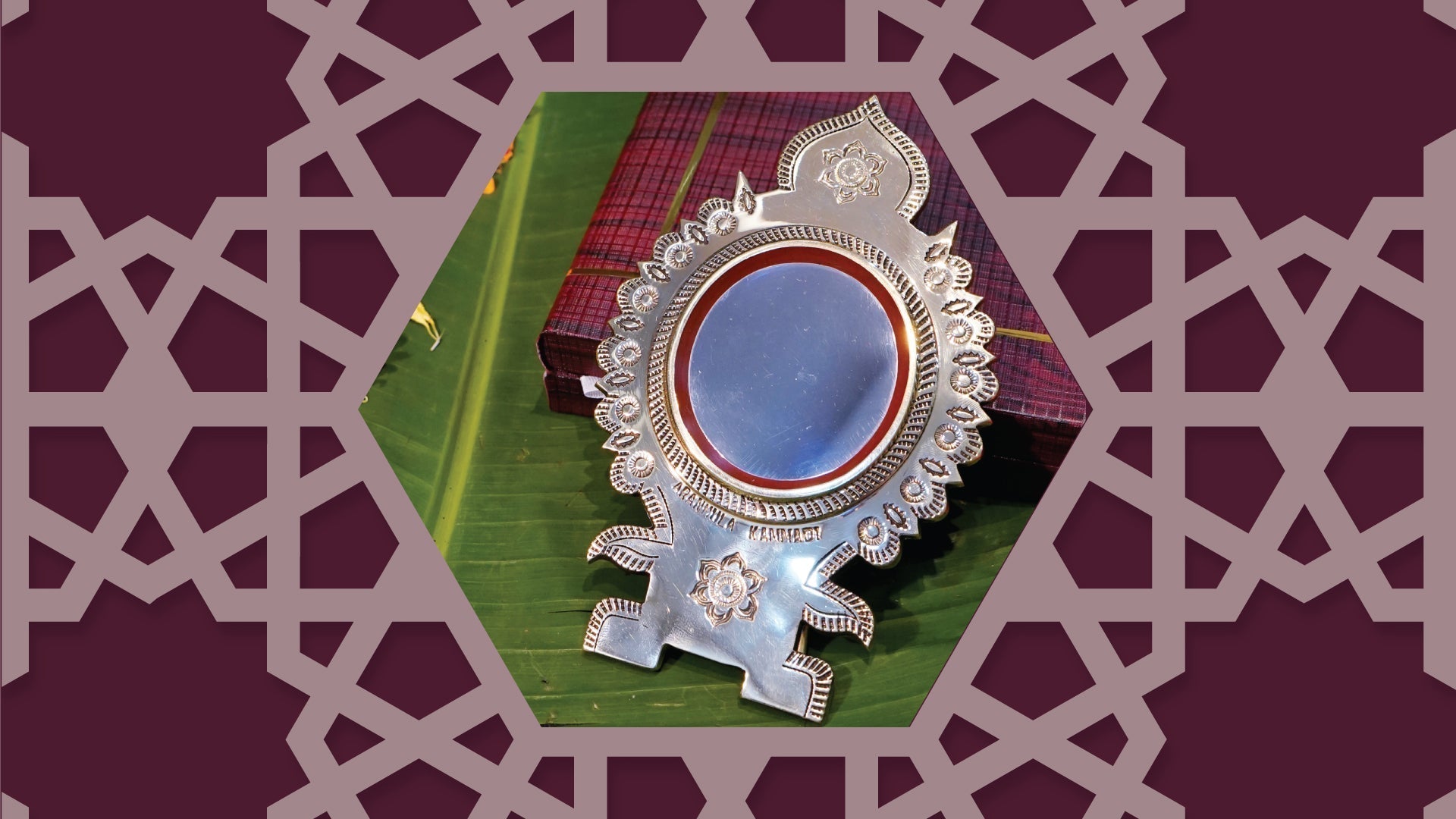Why Is Aranmula Kannaadi Considered Kerala's Magical Mirror?

Why Aranmula Kannadi Is Considered Kerala's Magical Mirror
Introduction
Kerala, a state in the southern part of India, is not only famous for its breathtaking landscapes and rich cultural heritage but also for its unique craftsmanship. One such marvel of craftsmanship is the Aranmula Kannadi, a handcrafted mirror that holds a special place in Kerala's tradition and is considered nothing short of magical. But what makes the Aranmula Kannadi stand out from any other mirror? Let's dive into the mystique and allure of this exceptional artifact.
The History and Origin of Aranmula Kannadi
The story of the Aranmula Kannadi is as captivating as the mirror itself. This traditional metal mirror has its origins in Aranmula, a small village in the Pathanamthitta district of Kerala. Legend has it that centuries ago, the royal family of Aranmula commissioned a unique mirror as a divine offering to the Parthasarathy Temple. The creators stumbled upon a secretive alloy composition that gave the mirror its distinctive reflective properties, unlike any glass mirror. This mirror, known as Aranmula Kannadi, soon became a symbol of mystique and purity in Kerala.
The Craftsmanship Behind Aranmula Kannadi
Crafting an Aranmula Kannadi is an intricate and time-consuming process, mastered by a handful of traditional families in Aranmula. The process begins with the creation of a unique metal alloy, the composition of which remains a closely guarded secret, known only to these families. The alloy is then cast into a flat surface and polished meticulously for days until it achieves a mirror-like finish. The frames, often ornately designed with motifs of Hindu mythology, add to the mirror's aesthetic and cultural value. The entire process can take anywhere from a few weeks to months, making each Aranmula Kannadi a unique masterpiece.
The Mystical Properties of Aranmula Kannadi
What truly sets the Aranmula Kannadi apart is its unparalleled reflective quality. Unlike conventional glass mirrors, the metal alloy surface of the Aranmula Kannadi eliminates secondary reflections, providing a clearer and distortion-free image. It is believed that this clarity symbolizes truth and purity, making the mirror not just a decorative item but a sacred artifact that wards off evil and brings good luck. This belief is deeply ingrained in the culture of Kerala, where the Aranmula Kannadi is often given as a precious gift during auspicious occasions.
Aranmula Kannadi in Modern Times
Despite the advent of modern mirror-making technologies, the demand for Aranmula Kannadi has not waned. Today, it is sought after not just in Kerala but across the world, prized for its craftsmanship, cultural significance, and the sheer beauty it brings into homes and sacred spaces. Art collectors, cultural enthusiasts, and those seeking a connection with India's rich heritage find immense value in owning an Aranmula Kannadi. Its presence in contemporary homes bridges the gap between tradition and modernity, making it a revered artifact that transcends time.
Preserving the Legacy
The artisans behind the Aranmula Kannadi face challenges in keeping this ancient craft alive amidst modernization and dwindling interest among the younger generation. However, efforts are underway to preserve this intangible cultural heritage. Workshops, awareness campaigns, and government support aim to inspire new generations to learn and carry forward the legacy of the Aranmula Kannadi. Additionally, its recognition as a Geographical Indication (GI) tag has helped in safeguarding its authenticity and promoting its unique identity globally.
Conclusion
The Aranmula Kannadi is more than just a mirror. It is a testament to the rich cultural fabric of Kerala, embodying the state's artistic prowess, spiritual beliefs, and the unparalleled skills of its craftsmen. In a world rapidly veering towards the impersonal and mass-produced, the Aranmula Kannadi stands out as a symbol of human ingenuity and the magic that hands and hearts can create. Owning this magical mirror is not just an acquisition of a decorative piece but an embrace of Kerala's cultural legacy and an acknowledgment of the artisans' dedication to preserving their heritage.
In exploring why the Aranmula Kannadi is considered Kerala's magical mirror, we uncover stories of tradition, devotion, and craftsmanship that enchant and inspire. This guide only begins to touch on the depth and breadth of Kerala's pride in the Aranmula Kannadi. Whether as a collector, a cultural enthusiast, or someone simply fascinated by the unique, let the story of Aranmula Kannadi inspire you to explore further the rich tapestry that is Kerala's heritage.
